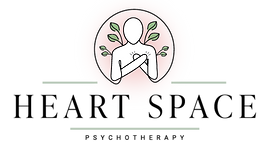The Hidden Cost of Always Rushing: Understanding Hurry Sickness
- Andreina Cheema

- Jul 7, 2025
- 3 min read

Do you ever catch yourself power-walking through the grocery store even when you’re not in a rush? Eating meals while standing? Skipping breaks even though you’re running on fumes? You might be dealing with something called Hurry Sickness.
Hurry Sickness isn’t an official diagnosis, but it’s something many of us struggle with, especially in a culture that praises productivity over presence. It’s a chronic sense of urgency, an inner pressure to move faster, do more, and always keep going. Even rest starts to feel like a guilty indulgence rather than a human necessity.
What Is Hurry Sickness?
Hurry Sickness is a behavior pattern marked by continual rushing and anxiousness, even when there's no real need to hurry. It was first coined by cardiologists Meyer Friedman and Ray Rosenman, who linked it to an increased risk of heart disease. But its effects aren’t just physical, they’re emotional, mental, and spiritual, too.
You might be experiencing Hurry Sickness if you:
Always feel like you’re racing the clock, even on your days off
Get irritated by “slow” people, traffic, or long lines
Multitask constantly and feel anxious doing one thing at a time
Struggle to slow down, rest, or just be without guilt
Equate your worth with how much you’re getting done
This constant rushing can keep your nervous system stuck in a low-level state of fight-or-flight. Over time, it chips away at your well-being, making it harder to be present, connected, and regulated..
Why Does This Happen?
For many of us, this isn’t just about a busy calendar, it’s deeper than that. We’ve internalized beliefs that our value comes from our output. That rest is lazy. That slowing down means falling behind.
Maybe you grew up in a home where productivity was survival. Maybe you learned to equate success with self-worth. Or maybe the world around you just never made space for stillness, softness, or slowness. Either way, these patterns didn’t come from nowhere, and they don’t make you bad or broken.
They make you human. And they can be unlearned..
Healing From the Hustle: A Holistic Approach

Healing from Hurry Sickness means learning how to slow down on purpose, even when it feels uncomfortable. It means honoring your humanity, not just your output. It’s about reconnecting with your body, your breath, and your own internal rhythms.
Some small ways to begin:
Mind
Notice the thoughts that rush you through the day. You might feel like you’re always racing the clock, even when there’s no need. Multitasking might feel necessary, and doing just one thing at a time might make you anxious. There may be a voice in your head equating your worth with how much you get done. Get curious about the thoughts or fears that come up when you slow down. And gently remind yourself: your worth isn’t based on your productivity..
Body
Your body often knows you’re rushing before your mind does. You might be tensing your shoulders, skipping meals, speed-walking everywhere, or powering through exhaustion. Invite your nervous system into regulation. Try gentle breathwork, stretch between tasks, or take a walk without a podcast or destination. Build in buffers between tasks so you’re not always in “go” mode. Your nervous system deserves slowness, softness, and a pace that honors your energy.
On a Soul Level
When you’re always in motion, it’s easy to lose touch with your deeper self. Hustling can drown out your inner voice. Rest can feel like a luxury you haven’t earned. But your soul needs stillness to speak. Slowing down makes space for reconnection—to joy, to meaning, to your why. Ask yourself: What am I rushing toward? And is it truly aligned with what matters to me?
You’re Not Alone: Therapy can support this process
If this resonates, know that you’re not alone, and you’re not failing. This culture was built to keep us doing rather than being. But healing is possible. Rest is possible. You’re allowed to move through life at your own pace. And if you don’t know what that pace is yet, that’s okay. Let’s explore it together.
Reach out to learn more: schedule a free 15 minute consultation or you can explore my website to learn more about Heart Space Psychotherapy.




Comments